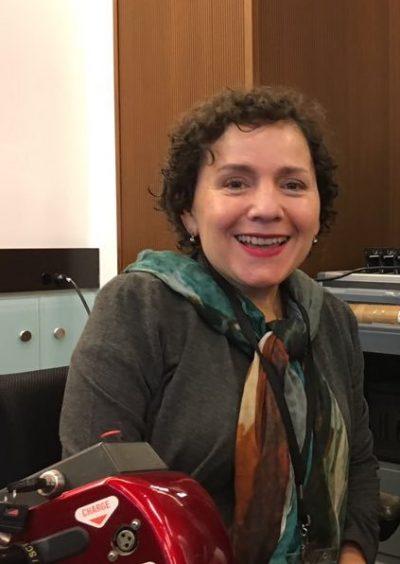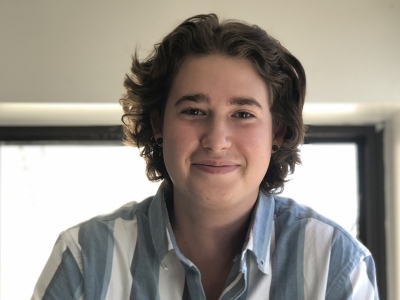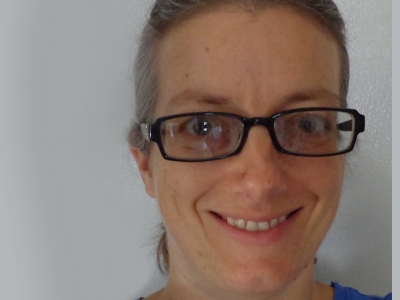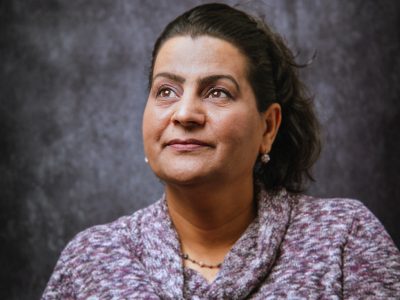By Karen Kelly
Yazmine Laroche, Deputy Minister for Public Service Accessibility
Bachelor of Arts, Mass Communication (’82)
As a lifelong public servant, Yazmine Laroche is well acquainted with the lack of accessibility planning in new public service projects. While there is lots of talk about user experience, she finds it’s usually not from the perspective of public servants living with disabilities.

Deputy Minister Yazmine Laroche
“For instance, with the Phoenix pay modernization project, in addition to all of the other issues, there was no requirement that it be accessible to employees with visual challenges,” says Ms. Laroche, the Deputy Minister for Public Service Accessibility. “It didn’t work with screen readers, so individuals had to ask someone else to read this very personal information.”
The problem, Ms. Laroche finds, is that accessibility is treated like an afterthought, rather than built into the process from the beginning.
This shortfall is just one of the factors that inspired Bill C-81, “An Act to ensure a barrier-free Canada”, which was introduced in June 2018. It also led to the creation of a new Deputy Minister for Public Service Accessibility, of which Ms. Laroche is the first.
“We’re in total start-up mode right now,” she explains. “Our number-one job is to develop an overarching strategy that will make the Canadian public service the most inclusive and accessible in the world.”
Her own office building might be one place to start: it’s quite new, but she and her staff have already encountered accessibility issues.
“Imagine the challenges employees face in older buildings. I’ve heard horror stories,” she says. “I think people are well-intentioned, but if they don’t talk to those who need the adaptation, I’m not sure how likely they are to succeed. There’s an expression in the disability community: ‘Nothing about us without us.’”
Ms. Laroche’s current focus is on consultations with everyone from public servants, fellow deputy ministers and IT firms. She and her colleagues are working on a strategic plan that will enable them to kick into gear as soon as C-81 becomes law—hopefully in the new year.
“We’re talking about a culture change: people see the world in a certain way and we’re trying to change how they think about things, whether it’s a policy, a program or a new product that you need to acquire for your employees,” she explains. “We feel a lot of momentum right now and a lot of good will.”
A Carleton Connection
But Ms. Laroche’s efforts on behalf of accessibility extend far beyond the public service. She is a director and former chair of Muscular Dystrophy Canada, and is also the Deputy Minister Champion for Carleton University.
“I’m passionate about Carleton’s role in advancing accessibility,” says Ms. Laroche who, as an alumna, is one of the Faculty of Public Affairs’ 75 for the 75th. “Carleton is one of the most accessible universities in the country—it really shows what accessibility and inclusion can look like.”
She is excited about Carleton’s new David C. Onley Initiative for Employment and Enterprise, an Ontario-funded project to increase employability and entrepreneurship of post-secondary students with disabilities.
“Carleton already does a great job of helping these students thrive and graduate. This will help them find and retain employment,” explains Ms. Laroche. “It leads really nicely into what we’re doing in the public service. Our target is to hire 5,000 employees with disabilities over the next five years.”
The Deputy Minister acknowledges that it’s an ambitious target, especially in a workplace as large and established as the public service. But she views it as a mission.
“I’m motivated by all of the public servants with disabilities who are creative and talented and are finding ways to work in an environment that wasn’t built for them,” she says. “We need to tap into their talent and creativity and innovative spirit to make this a better public service.”
Wednesday, November 21, 2018 in Alumni Stories, FPA Voices
Share: Twitter, Facebook



